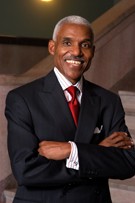
City Councilman Shea Flinn’s proposal for a one-time 39-cent property tax assessment gained the support of Mayor A C Wharton Tuesday, and Wharton said that if the council goes along with it then a long-running dispute with Memphis City Schools could be settled.
The assessment on property owners in Memphis would raise about $40 million, which Wharton said MCS officials agreed to accept as full and final payment of a $57 million debt going back to 2008. The council will take up the proposal in two weeks. The city would still have to pay MCS $80 million or about 9 percent of the school system’s operating budget every year until the city and county systems are merged.
The assessment would cost the owner of a $200,000 home about $180. It is likely to provoke charges that it will become permanent, like the “temporary” county wheel tax.
Wharton made the announcement during his budget speech to the council. He said one reason he accepts it as the best of some bad options is that, as an attorney, he is uncomfortable defying the ruling by three courts that Memphis must pay up.
Although Flinn has publicly said his proposal has no chance, that now seems to be a misstatement. Iin a committee meeting, Council members Joe Brown, Wanda Halbert, and Janis Fullilove said they would oppose it. Council members Kemp Conrad, Harold Collins, and Reid Hedgepeth said major fixes are needed in the budget, not one-year measures. Collins described the approach as “shoestrings, paper clips. and bubblegum.” Whether that means cuts, taxes, or some combination will be revealed in the coming weeks. The committee kept Flinn’s proposal alive without recommending it.
 Jackson Baker
Jackson Baker
Wharton and Flinn compare notes before the Council meeting.
What gives the proposal a chance is the acceptance of the offer by the MCS officials, the promise that it will be a one-time assessment and not an annual tax increase, the support of the mayor, and the scarcity of other options.
Brown said he would oppose privatizing the sanitation department or additional layoffs beyond the 125 proposed by Wharton. Fullilove said she is against layoffs and holiday reductions for city employees and would like to hear discussion of a payroll tax on people who work in Memphis but live outside the city. Halbert also floated the idea of a payroll or privilege tax.
Wharton proposed that city employees not be paid for 12 of their 14 holidays, which amounts to a 4.6 percent pay cut. He also proposed $23 million in combined cuts from every division except police and fire.
“Nothing we do will generate universal praise or support,” said Wharton.
The final 2012 budget must be ready by June 6th.
Memphians can look forward to some other fees in the new economy. Wharton said charging for car inspections is one possibility. And as a counter proposal to Wharton’s suggestion that the city privatize downtown parking meters, the Center City Commission wants to “modernize” them rather than “monetize” them. “Diligent enforcement” of parking violations by an outside firm would put a little extra cash in city coffers, especially if ticket scofflaws were unable to renew their car registration, as some council members have suggested. And police, who are spared from the layoffs, can be counted on to diligently enforce speed limits and traffic violations.
